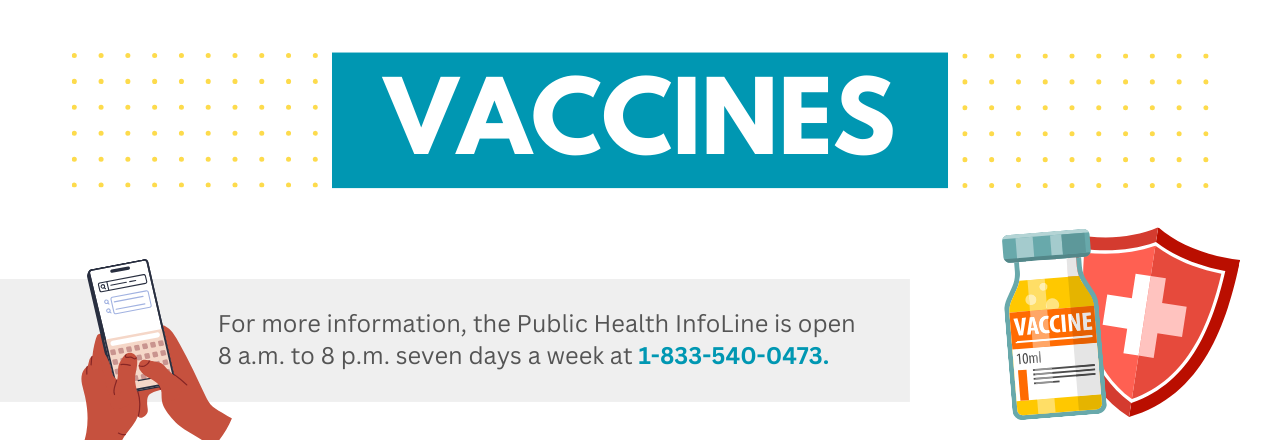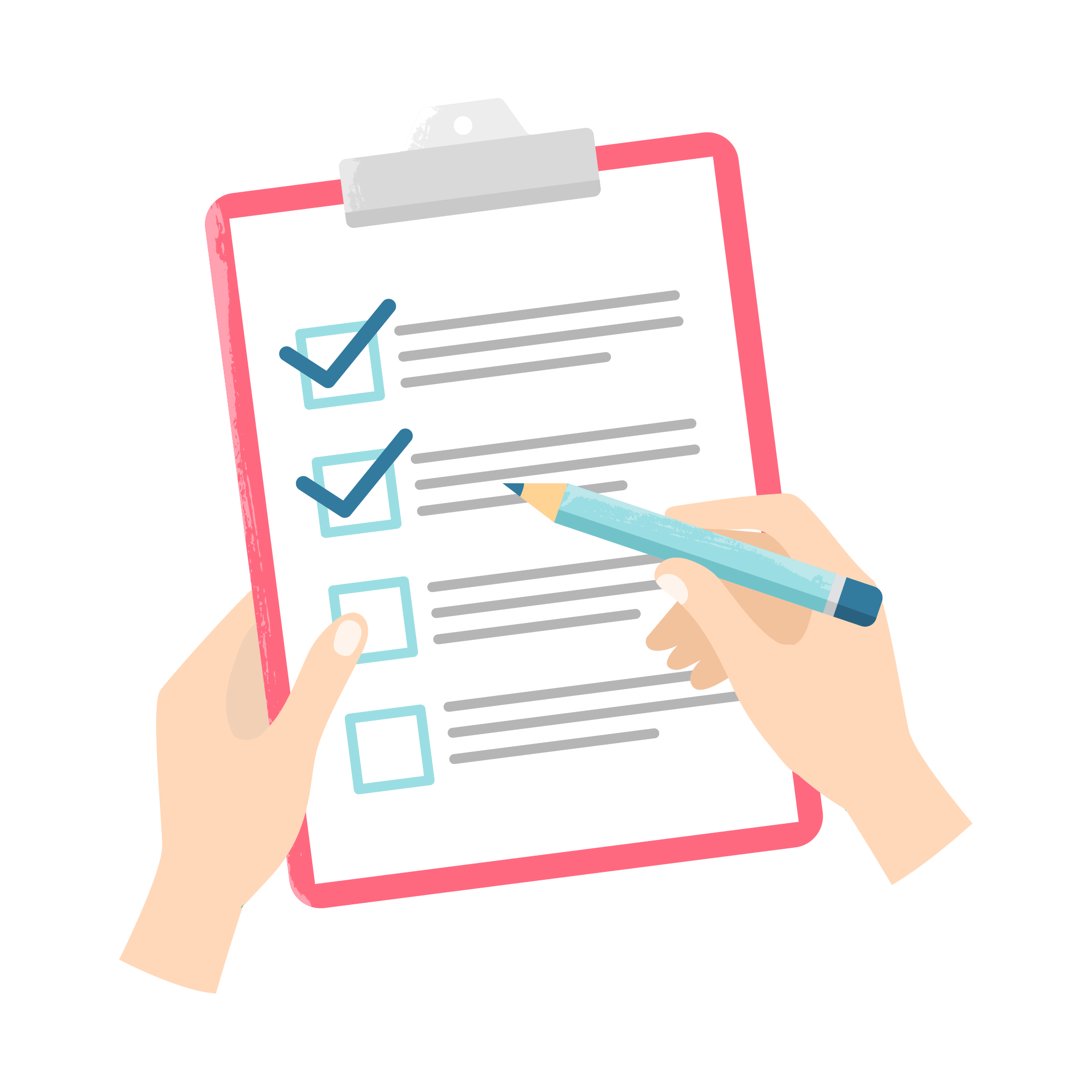
WHY VACCINATE?
- Stay Healthy: Vaccines protect us from getting serious illnesses and feeling really sick.
- Protect Your Loved Ones: By getting vaccinated, we also protect those who can't get vaccinated, like infants and those with weakened immune systems.
- Avoid Disruptions: Vaccinations mean less chance of changing our plans or missing important activities because of illness.
- Safe Schools and Activities: Vaccinations are a vital part of keeping schools and activities safe for everyone involved.
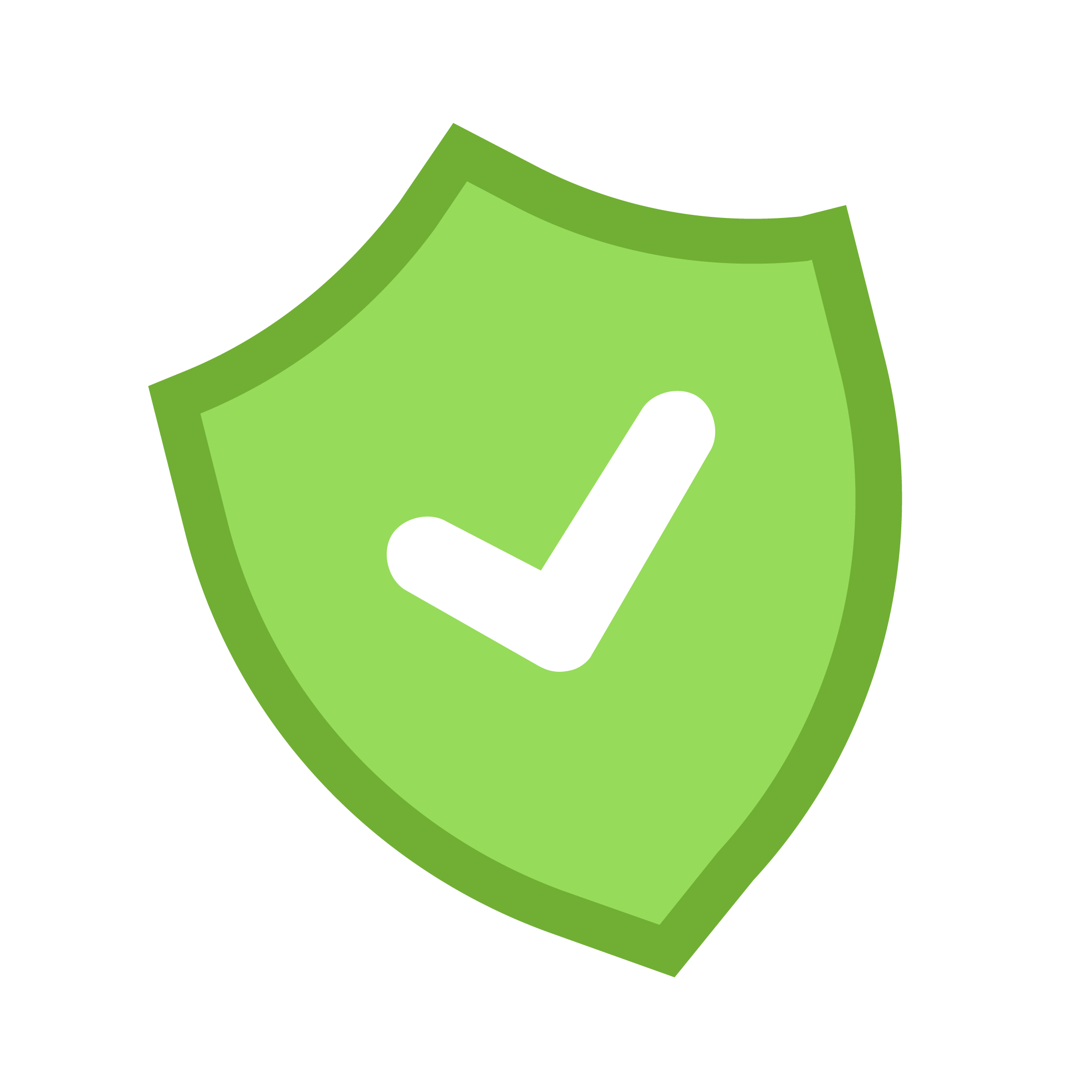
WHICH VACCINES ARE IMPORTANT FOR FALL AND WINTER?
- Flu Vaccine: It's crucial to get vaccinated against the flu to avoid getting sick.
- COVID-19 Vaccine: This vaccine is updated from time to time to protect against the latest strains of the virus. Everyone 6 months and older is recommended to receive at least 1 dose of the updated COVID-19 vaccine. Adults ages 65 years and older should receive an additional dose of the updated COVID-19 vaccine at least 4 months after their previous dose.
- RSV Vaccine: For people aged 60 and older, one dose protects against the respiratory syncytial virus (RSV). Infants and young children also may be eligible for additional protection against RSV. Talk to your health care provider to learn what they recommend.
- Childhood Vaccines: Make sure your kids' vaccines are up to date to protect them from diseases like measles, mumps, rubella and whooping cough. Vaccines are required for school.
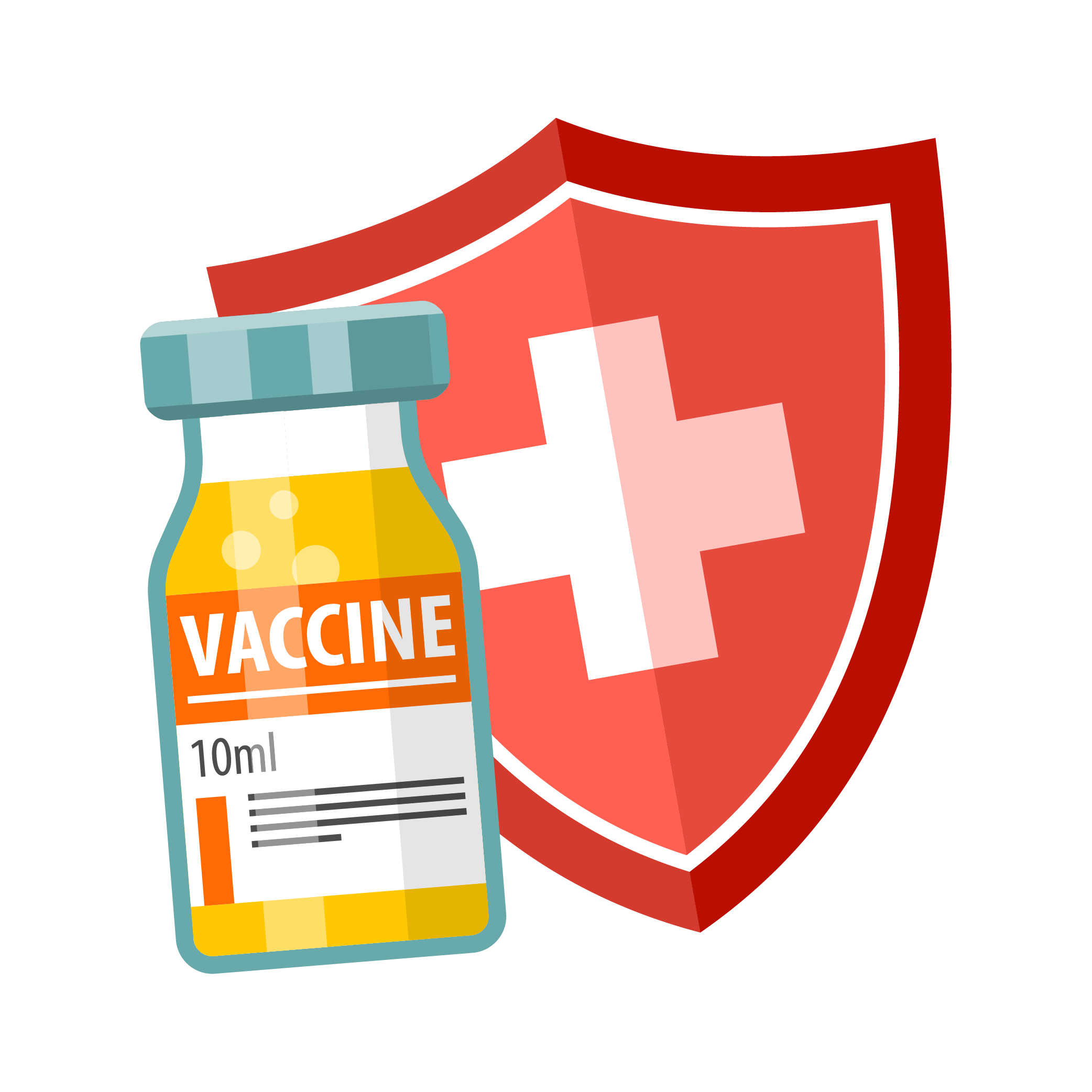
WHO NEEDS VACCINES?
- Everyone can benefit from vaccines, from newborns to adults.
- Vaccines are recommended based on your age and health conditions, and you may need them for school, work, travel, or childcare.
- For the best protection, it's essential to stay up to date on vaccines by getting all the recommended doses.
To learn what vaccines are recommended for you, ask your health care provider or pharmacist. For a list of recommended vaccines, visit: https://www.cdc.gov/vaccines.
GET YOUR QUESTIONS ANSWERED
Vaccine
Misinformation

This misinformation can lead to fear and confusion, and in some cases, it's led to outbreaks of diseases we had under control, like measles. Let's set the record straight by busting some common false vaccine beliefs.
FALSE: Vaccines Cause Autism
TRUTH: There is no scientific proof that vaccines cause autism. This false belief began with a flawed study published in 1998, which was later withdrawn due to serious errors and ethical issues. Since then, many extensive research studies involving millions of children worldwide have found no link between vaccines and autism.
FALSE: Natural Immunity is Better than Vaccine-Provided Immunity
TRUTH: Catching a disease can sometimes give you immunity, but it's inconsistent and can come with severe health risks. For example, catching chickenpox can make you immune for life, but it could also lead to serious complications like skin infections or pneumonia. Vaccines, on the other hand, provide similar protection without the risk of getting seriously ill.
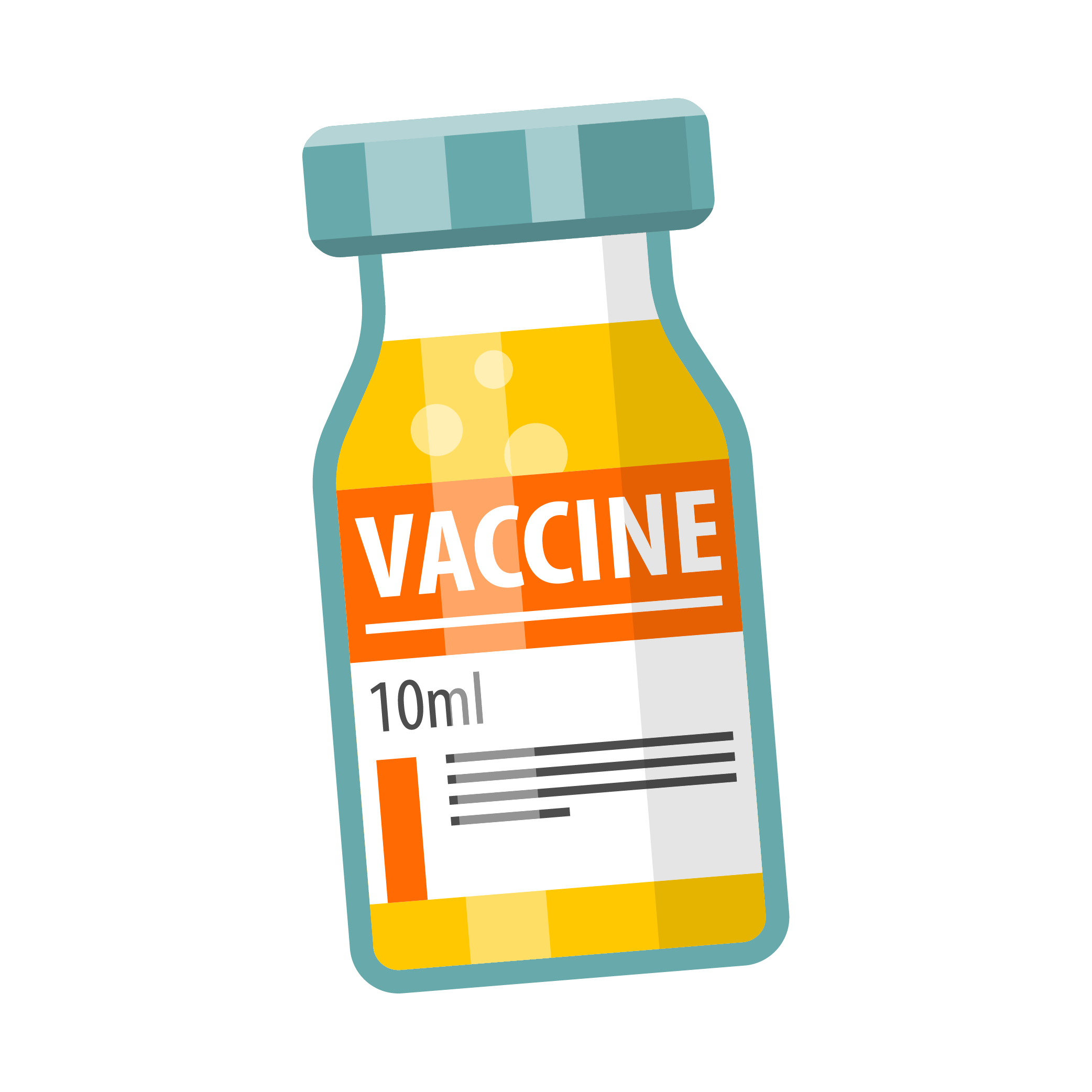
FALSE: Vaccines Contain Harmful Ingredients
TRUTH: Vaccines contain ingredients needed to keep them effective and safe. Some components might sound scary, like formaldehyde and mercury. However, the amount of formaldehyde in a vaccine is very small – in fact, it’s significantly lower than the amount your body produces naturally each day. Most vaccines don't have any mercury and thimerosal, a form of mercury, was removed from all childhood vaccines in 2001. When it is used, mercury helps prevent bacteria and fungal growth in multi-dose vaccines. Plus, vaccines are continually tested and monitored for safety by scientists and health professionals.
FALSE: Vaccines Can Give You the Disease They're Designed to Prevent
TRUTH: Most vaccines contain pieces of the virus or bacteria that can't make you sick. Some vaccines do have weakened or “live” viruses, but they're too weak to cause the actual disease. Instead, they teach your immune system how to resist the real thing if it ever shows up.
FALSE: Vaccines Weaken Your Immune System
TRUTH: Vaccines actually train your immune system to be stronger. By introducing a harmless version of a virus or bacteria, your immune system learns how to protect against it. That way, if you ever come across the real thing, your body knows what to do.
FALSE: I Don't Need Vaccines Because Herd Immunity Will Protect Me
TRUTH: Herd immunity works only when a large majority of people are vaccinated, protecting those who can't be, like newborns or people with certain health conditions. If too many people opt out of vaccination, herd immunity fails, leaving everyone, including the most vulnerable, at risk.
FALSE: Vaccines Have Microchips That Track People
TRUTH: There are absolutely no microchips or tracking devices in vaccines. This myth might have started from misunderstandings about digital health records, which are electronic versions of patient medical charts that are maintained by health care providers and have nothing to do with tracking individuals.
FALSE: You Don't Need to Vaccinate Against Diseases We've Already Defeated
TRUTH: While some diseases are rare now thanks to vaccines, they're not completely gone. If we stop vaccinating, these diseases can come back and fast. That's why we still need vaccines - to keep diseases away and protect our communities.
COVID-19 Vaccine
Misinformation
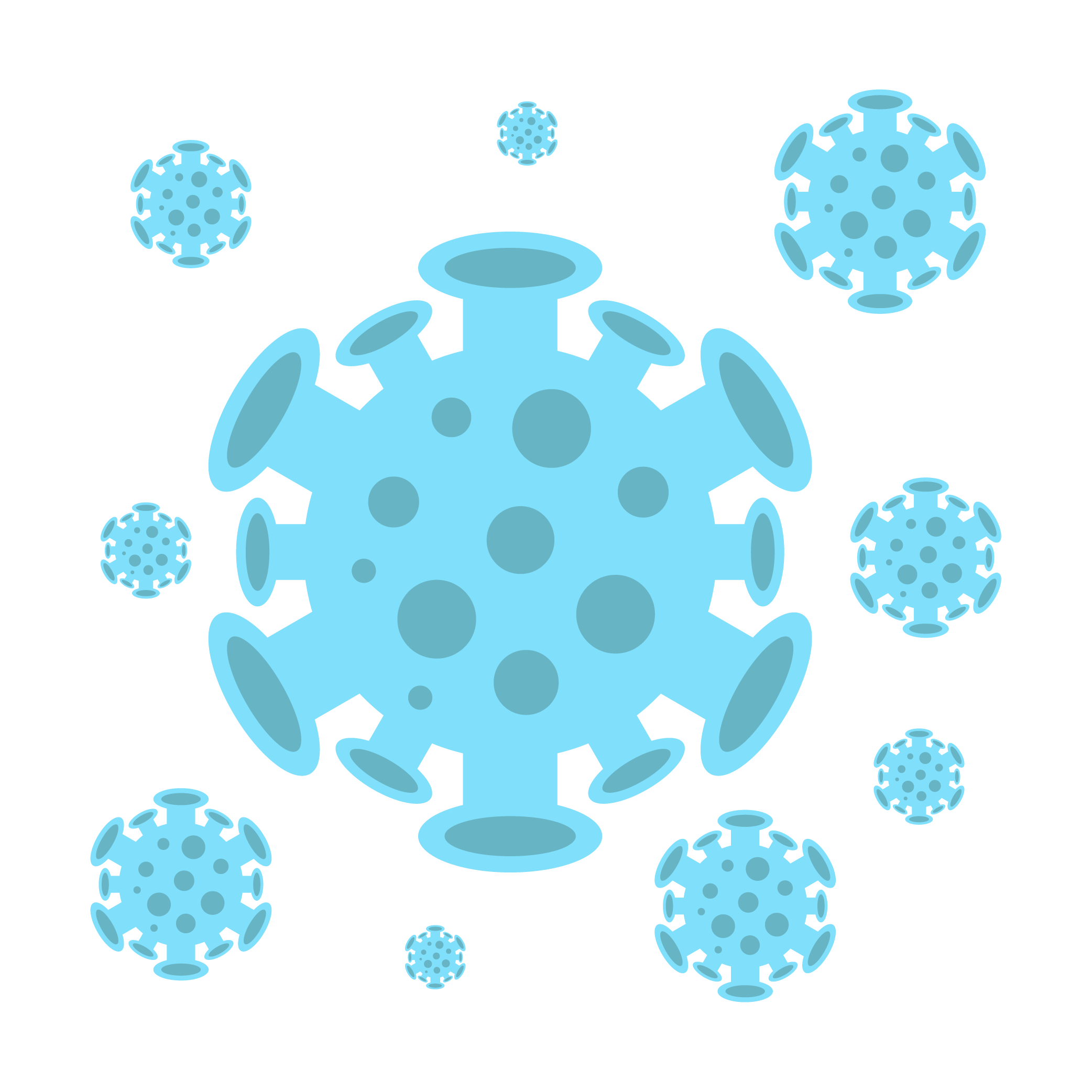
The Safety Record of Vaccines
FALSE: COVID-19 vaccines were developed too quickly to be safe.
TRUTH: Despite the speedy development, no steps were missed in the safety and approval process for the COVID-19 vaccines. This tremendous achievement was possible due to global cooperation, increased funding and scientific methods that have been in use for decades. Safety has always been and will continue to be the top priority. Scientists and health professionals worldwide are working tirelessly to ensure that the COVID-19 vaccines remain safe and effective for everyone.
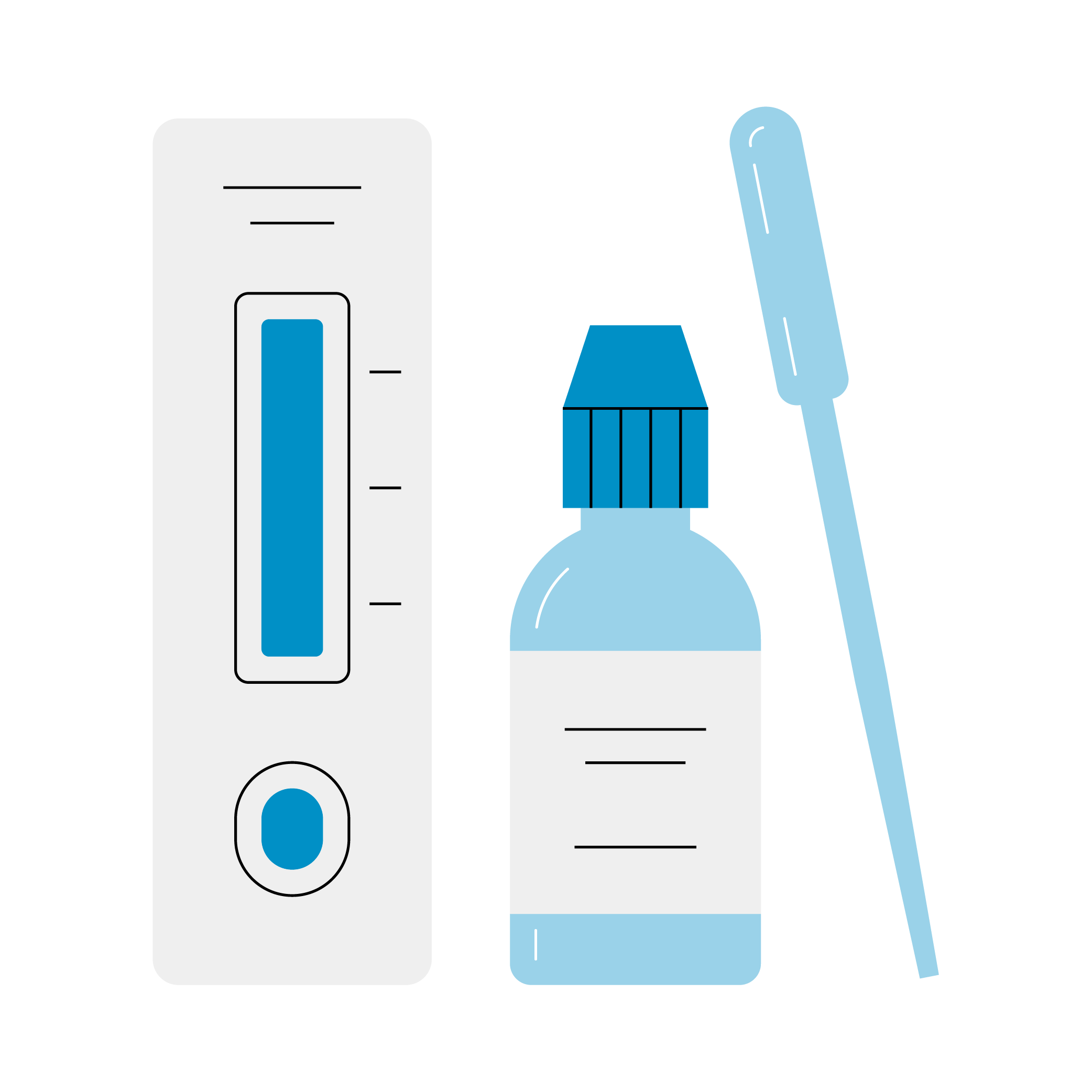
Potential Side Effects
FALSE: Vaccines cause severe side effects.
TRUTH: Billions of people around the world have received the COVID-19 vaccine. Most people experience only mild symptoms, like a sore arm or feeling a bit under the weather for a day or two. Serious side effects have been extremely rare. In fact, the chance of severe side effects is much lower than the risk of severe illness from COVID-19 itself. The benefits of being vaccinated — preventing severe illness, hospitalization and death — greatly outweigh these small risks.
The Necessity of Vaccination
FALSE: I'm in good health and don't get sick often, so I don't need the COVID-19 vaccine.
TRUTH: Even healthy people can get very sick with COVID-19. Plus, if you test positive or have symptoms, you could have to miss work, school, family gatherings or social events.
Other Common Misconceptions
FALSE: I’ve had COVID-19, so I won’t benefit from vaccination.
TRUTH: A COVID-19 vaccine remains the best protection against getting COVID-19, whether you’ve had COVID-19 already or not. Studies have shown that immunity from prior infection wanes over time and that vaccines provide more protection from severe illness, long COVID and death than natural immunity.
FALSE: I’ve already had the early COVID-19 vaccines, I don’t need the latest one.
TRUTH: Like all viruses, COVID-19 can change a little bit every time it spreads to a new person. These changes can lead to a new version or “variant” of the virus. If the variant is very different from the original virus, the vaccine may need to be updated. Studies have shown that immunity from COVID-19 vaccination wanes over time. The updated vaccines will restore immune protection against severe illness. For the maximum protection against COVID-19, you should stay up to date on recommended vaccines.

FALSE: The COVID-19 vaccine can impact fertility or puberty.
TRUTH: There have been no reports of infertility from the vaccine among thousands of people who participated in clinical trials. In fact, many vaccine recipients have effectively conceived. Nor is there evidence of delayed puberty in children after receiving the COVID-19 or any other vaccine.
FALSE: The COVID-19 vaccine will change my DNA.
TRUTH: Messenger RNA (mRNA) vaccines do not change DNA. The mRNA in the COVID-19 vaccine cannot enter the nucleus of the cell, where DNA lives. The mRNA helps activate an immune response to COVID-19, and then your cells break down the mRNA to get rid of it without affecting other systems in the body.
HOW DO VACCINES WORK?
- Vaccines teach your body to recognize harmful viruses or bacteria and create special antibodies to keep you healthy if you ever get infected.
- There are different types of vaccines. They can be given as injections, orally or through the nose.
- Many things can affect the level of protection a vaccine provides, including the amount of exposure to infection, time since receiving the vaccine and personal health factors. While no vaccine is 100% perfect, they are the best way to protect you from severe illness.

HOW DO WE KNOW VACCINES ARE SAFE?
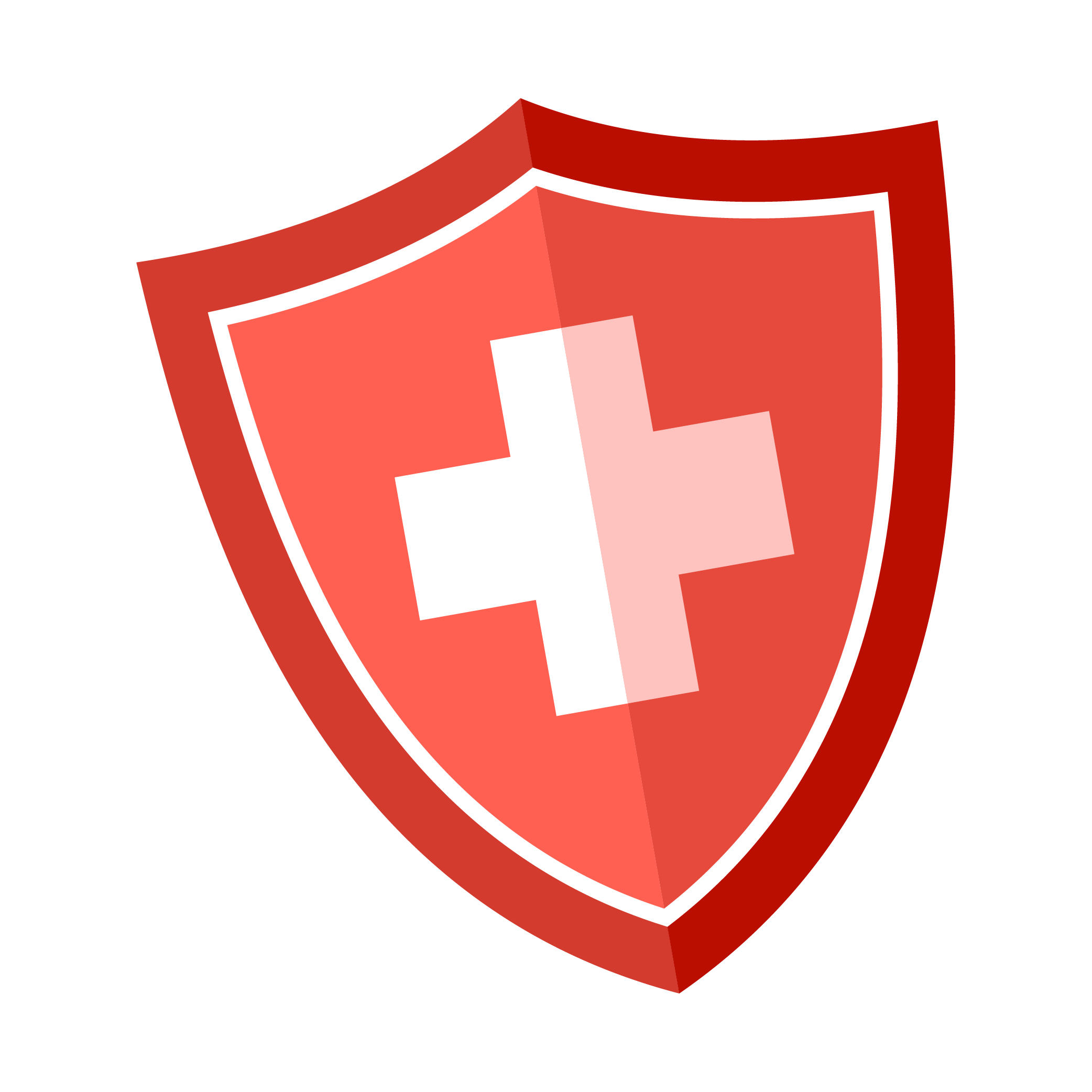
- Before any new vaccine is made available to the public, a lot of testing is done to know that it’s safe and provides significantly more protection than if a person is not vaccinated at all.
- Federal agencies approve new vaccines and monitor how they are used, side effects and effectiveness, making changes as needed.
- Extensive research by scientists, hospitals and universities have debunked vaccine myths and misinformation. Vaccines are not linked to autism or infertility, nor do they alter DNA or cause disease.
WHY DO I NEED VACCINES AT DIFFERENT TIMES?
Why Do Some Vaccines Need Multiple Doses or Boosters After A Period of Time?
Each vaccine is designed to provide strong protection against specific viruses or bacteria with minimal side effects and maximum effectiveness. To achieve this, there are different vaccine schedules and boosters required to maintain protection.
Some vaccines, like the flu and COVID-19 vaccines, need to be updated regularly to match the most common and dangerous strains of the virus. Some people, like pregnant individuals or those with weak immune systems, may need extra doses to stay protected.
Which Vaccines Do I Need?
Talk to your health care provider or pharmacist to learn what vaccines are recommended for you and your family members. Here’s a few of the most common ones:
- Flu Vaccine: You should get this every year, especially in the fall, to reduce the risk of getting the flu. If you're 65 or older, ask your provider about the higher dose flu vaccine.
- COVID-19 Vaccine: This vaccine is updated from time to time to protect against the latest strains of the virus. Everyone 6 months and older is recommended to receive at least 1 dose of the updated COVID-19 vaccine. Adults ages 65 years and older should receive an additional dose of the updated COVID-19 vaccine at least 4 months after their previous dose.
- Pneumonia Vaccine: Protects against several types of pneumococcal bacteria that can cause serious infections in children and adults. The 4-dose childhood series is recommended before age 5. For older children and adults, take as advised.
- Chickenpox Vaccine: It's a two-dose series given to children and also recommended for those over 13 who haven't had chickenpox before.
- Shingles Vaccine: This two-dose vaccine protects against shingles in older adults, taken two to six months apart for maximum protection. Recommended for adults 50 years old and older, even if you’ve had chickenpox before. Check with your provider if you already received the one-dose Zoster vaccine.
- Tdap Vaccine: One dose of this vaccine protects against tetanus, diphtheria and whooping cough. You may need a booster every 10 years.
- RSV Vaccine: For people aged 60 and older, one dose protects against the respiratory syncytial virus (RSV). Infants and young children also may be eligible for additional protection against RSV. Talk to your health care provider to learn what they recommend.
- Hepatitis B Vaccine: It's a two or three dose series recommended for everyone, those 60 years old or older should consult with their provider about getting this vaccine.
To find out which vaccines you need or if you need boosters, ask your health care provider. For a list of recommended vaccines, visit: https://www.cdc.gov/vaccines.

Public Health Call Center
For more information, the Public Health Call Center is open 8 a.m. to 8 p.m. seven days a week at 1-833-540-0473.
PRIORITY POPULATIONS
Vaccines
For Older Adults
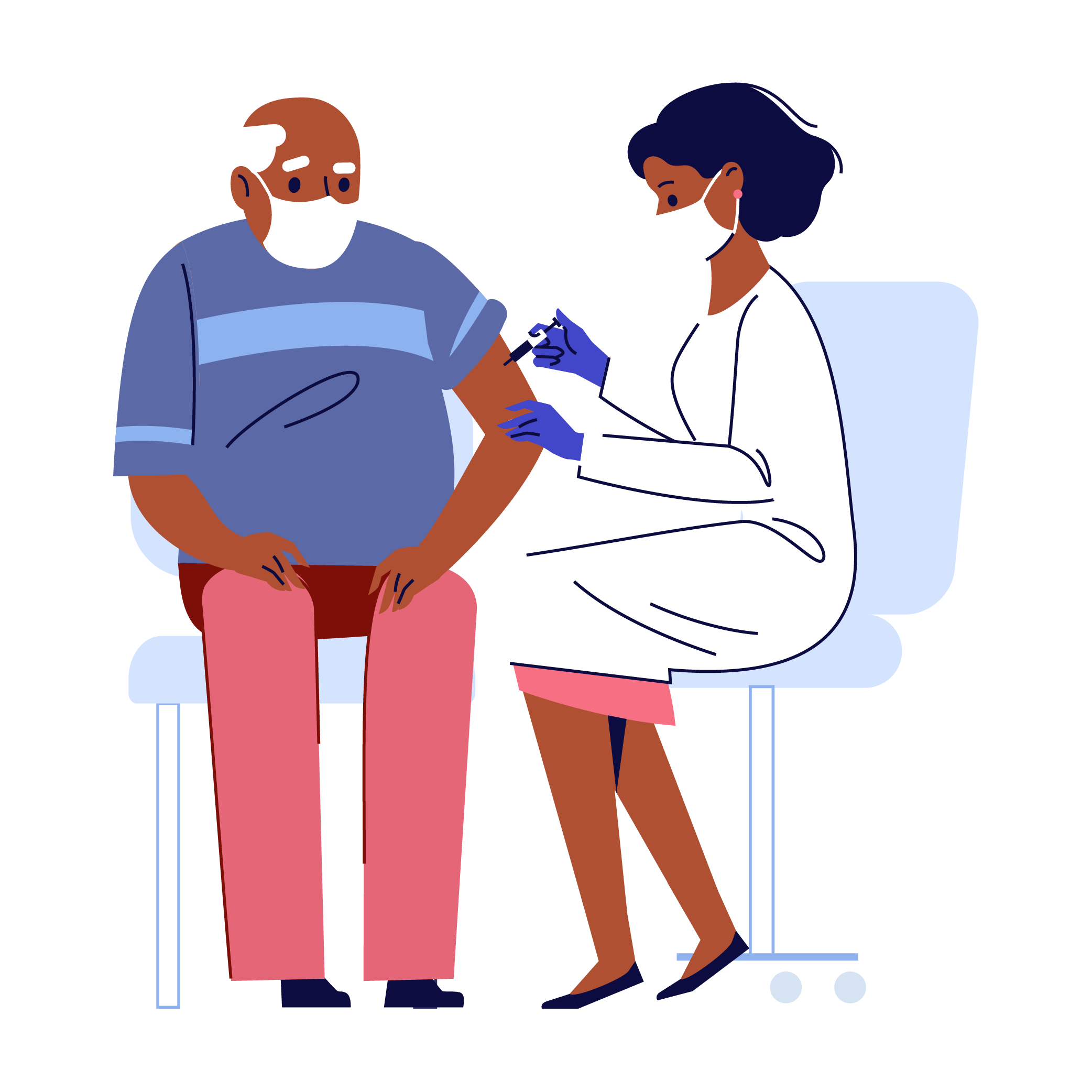

As we get older, our bodies become less effective at protecting us from illnesses. People who are 65 years old and older are at a higher risk of getting very sick from diseases like Flu, COVID-19, pneumonia, and others. But there's a way to stay protected: vaccines!
Vaccines provide a safe, effective and easy way to protect older people from preventable diseases that can lead to hospitalization and death. For maximum protection, make sure you stay up to date on your vaccines. Recommended vaccines are based on your age and health condition or history and may be required for your job or travel. If you don’t know which vaccines you’ve had or which ones you still need, ask your provider.
What Vaccines Do I Need?
Adults 65 years old and older should get the following vaccines:
- Flu Vaccine: You should get this every year, especially in the fall, to reduce the risk of getting the flu. If you're 65 or older, ask your provider about the higher dose flu vaccine.
- COVID-19 Vaccine: This vaccine is updated from time to time to protect against the latest strains of the virus. Everyone 6 months and older is recommended to receive at least 1 dose of the updated COVID-19 vaccine. Adults ages 65 years and older should receive an additional dose of the updated COVID-19 vaccine at least 4 months after their previous dose.
- Pneumonia Vaccine: This protects against serious bacterial infections. Your provider will advise you when to get it.
- Shingles Vaccine: This two-dose vaccine protects against shingles in older adults, taken two to six months apart for maximum protection. Recommended for adults 50 years old and older, even if you’ve had chickenpox before. Check with your provider if you already received the one-dose Zoster vaccine.
- Tdap Vaccine: One dose of this vaccine protects against tetanus, diphtheria, and whooping cough. You may need a booster every 10 years.
- RSV Vaccine: For people aged 60 and older, one dose protects against the respiratory syncytial virus (RSV). Consult with your provider for more information.
How Do I Get Vaccinated?
- Visit your health care provider or pharmacy.
- Ask your health care provider if additional doses are recommended for you.
- If you don’t have a provider, go to public health vaccination sites for a list of free and low-cost vaccination clinics and more information about vaccines.
- Medicare covers most recommended vaccines with no out-of-pocket costs. Contact Medicare or your Medicare Advantage Plan provider to learn more about what is covered by insurance. Information is available at: https://www.medicare.gov/health-drug-plans/health-plans.
- The best part is you can get most vaccines at the same visit!

Public Health Call Center
For more information, the Public Health Call Center is open 8 a.m. to 8 p.m. seven days a week at 1-833-540-0473.
Vaccines
For Pregnant People

Here’s What You Need To Know:
- Vaccines are safe during pregnancy for pregnant people and their babies.
- Vaccination during pregnancy is the best way to protect newborns from serious illness, especially since they can’t get vaccines yet.
Vaccines Needed During Pregnancy
Tdap Vaccine:- Get the Tdap vaccine during weeks 27 through 36 of each pregnancy to help protect your baby from pertussis (whooping cough).
- Whooping cough is especially severe for newborns and can be life-threatening.

- The COVID-19 vaccine is safe to receive at any point during your pregnancy.
- Pregnant people are more likely to get severely ill with COVID-19. compared with non-pregnant people.
- Staying up to date with the CVOID-19 vaccine provides protection for your newborn during the first months of life until your baby can receive their own COVID-19 vaccine.
- Pregnant people can get a single dose of a respiratory syncytial virus (RSV) vaccine during weeks 32 through 36 of pregnancy during September through January to protect their newborn against RSV. RSV causes bronchiolitis and pneumonia in young infants.
- To prevent severe RSV disease in infants, either maternal RSV vaccination or infant immunization with nirsevimab shortly after birth during RSV season is recommended. Most infants will not need both.
- The flu vaccine is safe to receive at any point during your pregnancy. Pregnant people are more likely to have severe illness from the flu. Babies younger than 6 months have the highest risk for being hospitalized from flu compared to children of other ages.
- Staying up to date with the flu vaccine provides protection for you and for your newborn during the first months of life until your baby can receive their own flu vaccine.
Hepatitis B Vaccine:
- Pregnant persons who have not previously been vaccinated against hepatitis B should get a hepatitis B vaccine during pregnancy to protect themselves and their baby from infection and diseases caused by the hepatitis B virus. Hepatitis B can cause long term damage to the liver.
Vaccines Newborns Need At Birth
Hepatitis B Vaccine:
- Your newborn should get the first dose of the Hepatitis B vaccine within 24 hours of birth to protect them from Hepatitis B infection.
RSV Injection (Nirsevimab):
- If you did not receive an RSV vaccine during pregnancy or if your baby was born within 14 days of getting the RSV vaccine, your newborn should receive a single dose of nirsevimab before or during the RSV season to protect them from severe illness. RSV is the most common cause of hospitalization in your newborn.
Your baby will also receive antibiotic eye drops, a Vitamin K injection and a simple blood test for newborn screening.
If you have questions, talk to your prenatal care provider.

Public Health Call Center
For more information, the Public Health Call Center is open 8 a.m. to 8 p.m. seven days a week at 1-833-540-0473.
Vaccines
For School-Aged Children


For maximum protection, children should stay up to date on all their vaccines – including the ones that protect them against flu and COVID-19.
What Vaccines Should My Child Get?
For TK/K through 12th grade:
- DTaP Vaccine: Children under 7 years old need multiple doses to protect against diphtheria, tetanus and whooping cough, which is especially dangerous for infants.
- Hepatitis B Vaccine: It's a two or three dose series recommended for everyone to prevent cancer and liver disease caused by the Hepatitis B virus.
- Polio Vaccine: This vaccine is effective in protecting children against this serious disease that can cause lifelong paralysis.
- MMR Vaccine: Take two doses for the most protection against these easily transmittable diseases: measles, mumps and rubella (German measles).
- Chickenpox Vaccine: It's a two-dose series given to children to prevent this highly contagious disease that causes an itchy, blister-like rash.
- Flu Vaccine: You should get this every year, especially in the fall, to reduce the risk of getting the flu.
- COVID-19 Vaccine: This vaccine is updated from time to time to protect against the latest strains of the virus. Everyone 6 months and older is recommended to receive at least 1 dose of the updated COVID-19 vaccine.
- Tdap Vaccine: Older children need one dose to protect against tetanus, diphtheria and whooping cough. It is required for students entering 7th grade.
Check with your school district to confirm which vaccines are required for school. For a full list of vaccines by age along with TK/K-12th grade requirements, visit shotsforschool.org.
Ask your health care provider how to protect infants and young children from severe respiratory illness from RSV.
How Do I Get Vaccinated?
- Talk to your pediatrician about back-to-school and annual vaccines.
- If you don’t have a health care provider, go to public health vaccination sites for a list of free and low-cost vaccination clinics and more information about vaccines.
- The best part is you can get most vaccines at the same visit! It means less discomfort for your children, and you will spend less time away from your other activities.

Public Health Call Center
For more information, the Public Health Call Center is open 8 a.m. to 8 p.m. seven days a week at 1-833-540-0473.
Vaccines
For People With Chronic Diseases
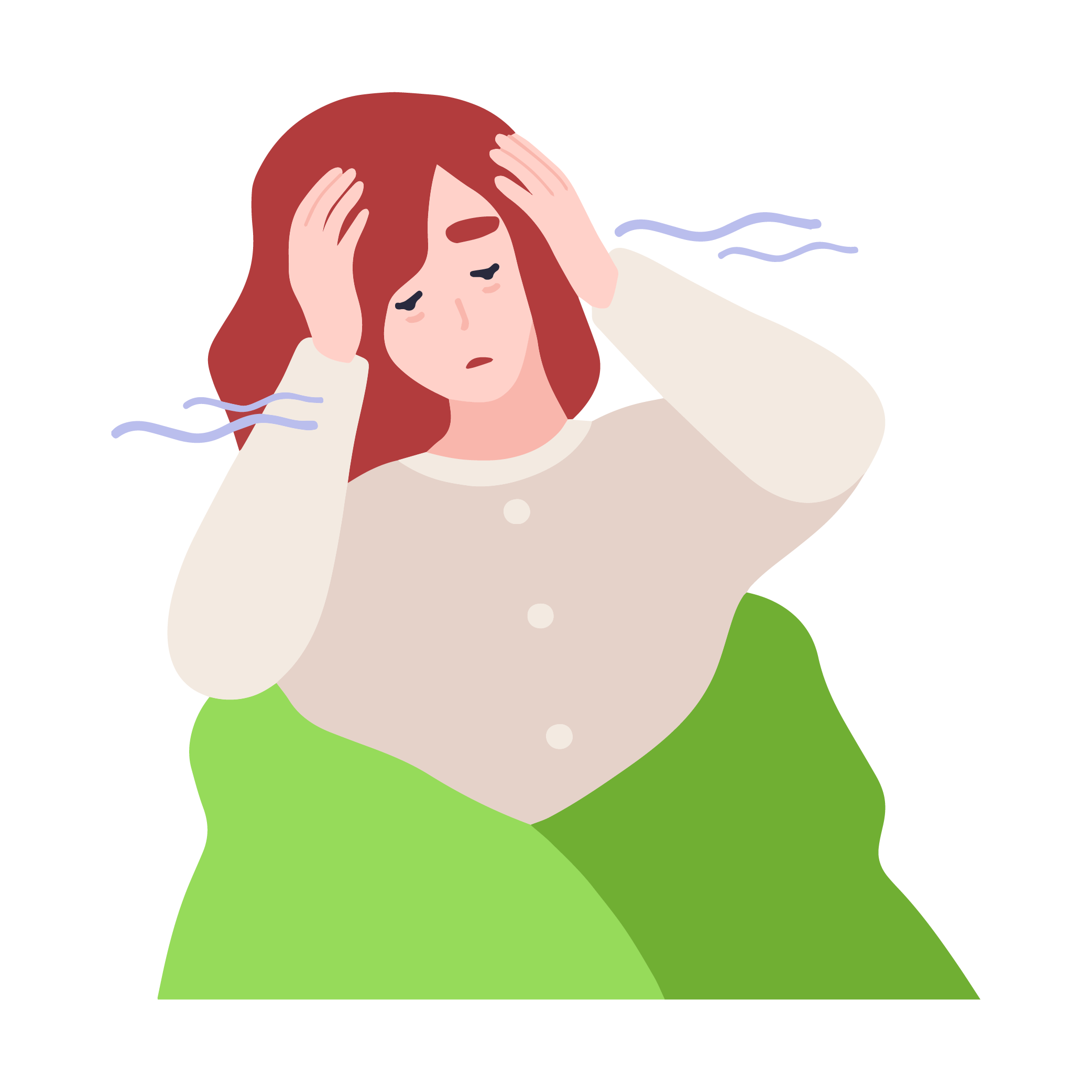
Vaccinations are a safe, effective and easy way to protect yourself against preventable diseases and are especially important for people with chronic diseases. However, depending on how affected your immune system is, you may need to avoid certain vaccines or wait until your immune system is stronger.
Ask your health care provider which vaccines you should get.
Which Vaccines Do I Need?
Talk to your health care provider to learn what vaccines are recommended for you and your family members. Here’s a few of the most common ones:
- Flu Vaccine: You should get this every year, especially in the fall, to reduce the risk of getting the flu. If you're 65 or older, ask your provider about the higher dose flu vaccine.
- COVID-19 Vaccine: This vaccine is updated from time to time to protect against the latest strains of the virus. Everyone 6 months and older is recommended to receive at least 1 dose of the updated COVID-19 vaccine.
- Pneumonia Vaccine: Protects against several types of pneumococcal bacteria that can cause serious infections in children and adults. The 4-dose childhood series is recommended before age 5. For older children and adults, take as advised.
- Shingles Vaccine: This two-dose vaccine protects against shingles in older adults, taken two to six months apart for maximum protection. Recommended for adults 50 years old and older, even if you’ve had chickenpox before. Check with your provider if you already received the one-dose Zoster vaccine.
- Tdap Vaccine: One dose of this vaccine protects against tetanus, diphtheria and whooping cough. You may need a booster every 10 years.
- RSV Vaccine: For people aged 60 and older, one dose protects against the respiratory syncytial virus (RSV). Consult with your provider for more information
- Hepatitis B Vaccine: It's a two or three dose series recommended for everyone, those 60 years old or older should consult with their provider about getting this vaccine.
How Do I Get Vaccinated?
- Visit your health care provider or pharmacy.
- Ask your health care provider if additional doses are recommended for you.
- If you don’t have a provider, go to public health vaccination sites for a list of free and low-cost vaccination clinics and more information about vaccines.
- The best part is you can get most vaccines at the same visit!

Public Health Call Center
For more information, the Public Health Call Center is open 8 a.m. to 8 p.m. seven days a week at 1-833-540-0473.
Vaccines
For People With Weakened Immune Systems
Vaccinations are a safe, effective and easy way to protect yourself against preventable diseases. They are especially important for people with weakened immune systems because you have more difficulty recovering from infections or diseases. However, depending on how affected your immune system is, you may need to avoid certain vaccines or wait until your immune system is stronger.
Ask your health care provider which vaccines are recommended for you.

Which Vaccines Do I Need?
-
COVID-19 Vaccine: This vaccine is updated from time to time to protect against the latest strains of the virus. Everyone 6 months and older is recommended to receive at least 1 dose of the updated COVID-19 vaccine. People with a weakened immune system may get additional doses of the 2023-2024 COVID-19 vaccine.
- Persons not previously vaccinated should receive 3 doses of the updated mRNA (Pfizer BioNTech or Moderna) or 2 doses of updated Novavax COVID-19 vaccine
- Persons who previously received an original Novavax, monovalent or bivalent mRNA vaccine need 1 or 2 doses of the updated COVID-19 vaccine depending on the number of prior doses.
- Flu Vaccine: You should get this every year, especially in the fall, to reduce the risk of getting the flu. If you're 65 or older, ask your provider about the higher dose flu vaccine.
- RSV:For people aged 60 and older, one dose of RSV vaccine protects against severe illness from the respiratory syncytial virus (RSV), which can cause lung infection in immunocompromised individuals. Infants under 8 months old should receive a single dose of nirsevimab (Beyfortus) before or during the RSV season (October through March) to protect them from lung infection. Infants and children 8 to19 months of age who are at high risk for severe RSV disease and entering their second RSV season should also receive one dose of nirsevimab.
- Pneumonia Vaccine: Protects against several types of pneumococcal bacteria that can cause serious infections in children and adults. The 4-dose childhood series is recommended before age 5. Recommendations for older children and adults, may be accessed here.
How Do I Get Vaccinated?
- Visit your health care provider or pharmacy.
- Ask your health care provider if additional doses are recommended for you.
- If you don’t have a provider, go to public health vaccination sites for a list of free and low-cost vaccination clinics and more information about vaccines.
- The best part is you can get most vaccines at the same visit!

For a list of recommended vaccines, visit: www.cdc.gov/vaccines

Public Health Call Center
For more information, the Public Health Call Center is open 8 a.m. to 8 p.m. seven days a week at 1-833-540-0473.
Vaccines
For Infants and Toddlers

Vaccines are recommended at different stages throughout your child’s life, carefully timed to protect children when they are most vulnerable to diseases and when the vaccine will produce the strongest response from the child’s immune system.
All recommended vaccines have been carefully studied and safely prevent diseases, like measles, mumps and chickenpox. They have been thoroughly tested to make sure they provide your child with more protection than if they were unvaccinated..
For maximum protection, infants and toddlers should stay up to date on all their vaccines. This is especially important during fall and winter, when children typically spend more time together indoors, increasing the risk of spreading respiratory illnesses, such as flu, COVID-19and RSV (respiratory syncytial virus).
What Vaccines Should My Child Get?
These vaccines are recommended for infants and toddlers, administered between birth and six years old, to protect from 15 potentially deadly infectious diseases:
- DTaP Vaccine: A 5-dose series is recommended, beginning at the age of 2 months, to protect against diphtheria, tetanus and whooping cough, which are especially dangerous for infants.
- Hepatitis B Vaccine: A 3-dose series, beginning at birth, is recommended to protect against Hepatitis B, which can cause fever, headache, weakness, vomiting, jaundice and long-term health complications.
- Polio Vaccine: A 4-dose series, when started at 2 months of age, can prevent polio, a disease resulting in sore throat, fever, nausea and paralysis.
- MMR Vaccine: Two doses are recommended, the first at 12 to 15 months old and the second at 4 to 6 years old, for the most protection against these easily transmittable diseases: measles, mumps and rubella (German measles).
- Chickenpox Vaccine: Two doses are recommended, the first at 12 to 15 months old and the second at 4 to 6 years old, to protect against varicella, which can cause rash, fever, infected blisters, brain swelling and/or pneumonia.
- Flu Vaccine: One dose is recommended annually for most children 6 months old and older. Some children may need two doses. Your health care provider can recommend the best dosing to protect against influenza, which can result in fever, muscle pain, extreme fatigue and respiratory infection.
-
Covid-19 Vaccine: The COVID-19 vaccine is recommended for children 6 months old and older. Vaccines offer protection from Multisystem Inflammatory Syndrome (MIS-C), a risk associated with COVID-19 infection in children. Children aged 6 months–4 years need multiple doses of COVID-19 vaccines to be up-to-date, including at least 1 dose of updated COVID-19 vaccine.
- Not previously vaccinated: should receive either 2 doses of updated Moderna, or 3 doses of updated Pfizer-BioNTech COVID-19 vaccine.
- Previously received some mRNA doses: need 1 or 2 doses of updated Moderna or updated Pfizer-BioNTech COVID-19 vaccine, depending on the number of prior doses.
- Previously up to date: need 1 dose of the updated Pfizer-BioNtech or Moderna COVID-19 vaccines.
- RSV Immunization: Infants under 8 months old who are born during or entering their first RSV season (October through March) should receive one dose of nirsevimab to protect against the respiratory syncytial virus (RSV), which causes pneumonia and bronchiolitis in young infants. Infants and children 8- to 19-months-old who are at high risk for RSV and entering their second RSV season should also receive one dose.
- Rotavirus (RV) Vaccine: A 2- to 3- dose series, beginning at the age of 2 months, to protect against this virus that can result in severe diarrhea, fever, vomiting and dehydration.
- Haemophilus influenzae Type b Vaccine (Hib): A 3- to 4- dose series, beginning at 2 months of age, that provides protection against bacterial infection which can result in meningitis, severe breathing problems and pneumonia.
- Pneumococcal Vaccine: A 4-dose series, beginning at age 2 months, that provides protection against multiple bacteria that can cause a pneumonia infection, affecting the lungs.
- Hepatitis A Vaccine: Two doses given, between 12 and 23 months of age, spaced at least six months apart, to protect against Hepatitis A. This can result in fever, loss of appetite, jaundice and long-term liver, kidney or blood disorders.
How Do I Get My Child Vaccinated?
- Talk to your child’s pediatrician/primary health care provider about vaccines.
- If you don’t have a provider, go to public health vaccination sites for a list of free and low-cost vaccination clinics and more information about vaccines.
- The best part is you can get most vaccines at the same visit! It means less discomfort for your child, and you will spend less time away from your other activities.

Public Health Call Center
For more information, the Public Health Call Center is open 8 a.m. to 8 p.m. seven days a week at 1-833-540-0473.
Get Vaccinated
Ted Watkins Memorial Park
1335 E. 103rd St.Los Angeles, CA 90002 Fridays
11 a.m. - 6 p.m.
9 a.m. - 3:30 p.m.
Obregon Park
4021 E. 1st St.Los Angeles, CA 90063 Fridays
11 a.m. - 6 p.m.
9 a.m. - 3:30 p.m.

Call to confirm hours of operation and which vaccines are offered at your desired location
Martin Luther King, Jr. Center for Public Health
11833 South Wilmington AvenueLos Angeles, CA 90059
(323) 568-8100
Public Health has made reasonable efforts to provide accurate translation. However, no computerized translation is perfect and is not intended to replace traditional translation methods. If questions arise concerning the accuracy of the information, please refer to the English edition of the website, which is the official version.

 Translate
Translate
